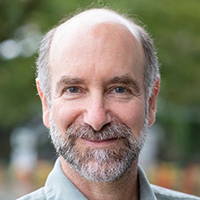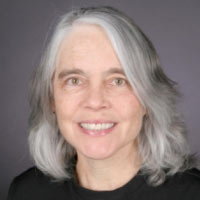
As the nation and the world race to mitigate climate change, sweeping climate policies are emerging — and fast. But these policies often ignore short-term human health and equity considerations. A new center at the University of Wisconsin–Madison is addressing that gap by establishing a base of evidence to help guide policy decisions: one that both maximizes health benefits and reduces further warming of our planet.
“Our new center will provide evidence to help guide [the] energy transition in order to maximize human health benefits.”
— Jonathan Patz

The Health-First Climate Action Research Center, among the first climate change and health research centers in the country, launched on September 20, 2024, with a $3.8 million grant from the National Institutes of Health.
Led by Jonathan Patz, a professor in UW–Madison’s Nelson Institute for Environmental Studies and the School of Medicine and Public Health (SMPH), the center seeks “a community-based, health-first approach to climate action and the energy transition.
“Recognizing the threat of climate change, societies are now motivated to reduce their dependence on fossil fuels,” says Patz. “Our new center will provide evidence to help guide this energy transition in order to maximize human health benefits alongside climate change mitigation goals.”
Comprising experts in air quality, human health, clean energy, and artificial intelligence, the center brings together faculty, researchers, and practitioners from UW–Madison, UW–Milwaukee, and the Medical College of Wisconsin.
Their goal is to understand the health and equity impacts of various energy types, all in the context of the U.S.’s clean energy transition. Operating with a “community-based, health-first approach,” the center will engage across communities, from local groups to scientists to policymakers. Their work, the proposal said, will “start and end with communities.”

“The idea that communities can reduce their reliance on fossil fuels for energy — and at the same time improve the health of their people and reduce health disparities — is both novel and very exciting,” says Maureen Durkin, chair of SMPH’s Department of Population Health Sciences.
As work begins, the center is focusing on:
- Engaging citizen scientists with web-based mapping, crowd-sourcing and artificial intelligence, and community use of low-cost air pollution monitors
- Creating decision-making models that balance policymaker and community needs
- Assessing the link between climate change and asthma in students of Milwaukee Public Schools
“Health action is climate action, energy action, transportation action,” explains Paul Robbins, dean of the Nelson Institute. “UW–Madison is a core for all this; an NIH center leverages the whole campus to make something new happen for people, cities, and infrastructure. This research team is second to none.”
Meet the Team
- Jonathan Patz, Director
Vilas Distinguished Achievement Professor and John P. Holton Chair of Health and the Environment, UW–Madison Nelson Institute for Environmental Studies and School of Medicine and Public Health (SMPH) - Bruce Barrett, Deputy Director
Professor, Department of Family Medicine and Community Health and Department of Population Health Sciences, SMPH - Tracey Holloway, Research Lead
Jeff Rudd and Jeanne Bissell Professor of Energy Analysis and Policy, Nelson Institute - Kirsten Beyer, Colead
Medical College of Wisconsin, UW–Milwaukee - Langston Verdin, Colead
MKE FreshAir Collective - Jomol Mathew, Data Science Core
UW Institute for Clinical and Translational Research; Director, Clinical and Health Informatics Institute